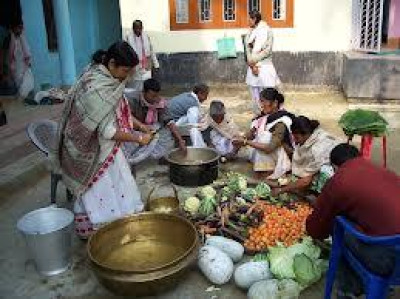Detailed Notes
This festival is deeply rooted in rural Assamese life, where families invite relatives, neighbors, and friends to share freshly harvested rice along with traditional dishes. Celebrated mostly after the harvest season, No Khuwa strengthens social bonds and honors the hard work of farmers.
In many parts of Assam, the occasion also includes folk songs, traditional games, and cultural performances, turning it into a vibrant social gathering. While its exact origin is not documented, historians suggest that No Khuwa evolved as a post-harvest tradition to express gratitude for a good yield and to foster unity among villagers.
Even today, No Khuwa holds a special place in Assamese culture, bridging generations and keeping alive the spirit of sharing, togetherness, and respect for agricultural heritage. It continues to attract cultural researchers, travelers, and those eager to experience authentic Assamese traditions.
